Dog Skin Itching and Hair Loss: Everything You Need to Know!
Is your dog scratching and losing hair?
You’re not alone—these are symptoms of an underlying problem that needs to be addressed. Learn how to spot the causes and get solutions to get your dog comfortable again to address their itchy skin, and their losing hair.
If you notice that your dog losing hair due to itching, it can be stressful for both of you. While some scratching is normal, persistent itching with hair loss is a sign of an underlying issue.
In this post, we’ll go over the common causes of skin itching and hair loss in dogs, how to treat them, and what you can do to prevent future episodes.
Disclaimer: This article is intended for informational purposes only and does not constitute medical advice. Always consult your veterinarian for diagnosis and treatment of any health concerns regarding your pet.
Table of Contents |
Introduction
Dogs, like humans, can get skin diseases and can lose hair.
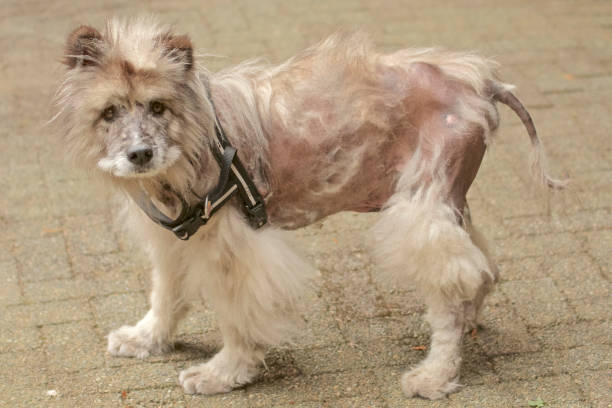
When you notice your dog scratching more than usual or see patches of hair loss it’s scary. While some scratching is normal, excessive scratching and hair loss are often a sign of an underlying problem that needs to be addressed.
A canine's skin is their largest organ, it’s a protective barrier and when it’s compromised your dog is more vulnerable to other health problems before it progresses into a skin disease. Whether it’s allergies, parasites, or infections, finding the underlying cause of their skin lesions, and losing hair is key to resolving the issue and preventing complications. So, addressing your dog's hair loss patchy hair loss, and even the dog's itchy skin is highly crucial to get it treated immediately for the benefit of your dog's coat.
Dog skin itching and patchy hair loss, and flaky skin can be caused by many things from environmental allergens like dust or pollen to more serious conditions like flea infestations, bacterial infections, or hormonal imbalances.
What starts as a minor irritation can quickly get out of hand and turn into raw, irritated skin, widespread hair loss, or infections, to the point that it may become a skin disease. The key is to spot the symptoms early and know the cause. By doing so you can act before it gets worse and get your dog relief and get their skin and coat back to normal.
In this post, we’ll go over the common causes of skin itching and hair loss in dogs, so you can spot the symptoms, get the right treatment, and prevent future episodes.
Whether it’s seasonal allergies, fleas, or something more serious we’ll cover how to tell the difference and what to do to get your dog comfortable. Addressing skin issues early is not only good for your dog’s health but also prevents long-term problems so your pet can live itch-free and happy.
Common Causes of Dog Skin Itching and Hair Loss

There are many reasons why a dog can get skin itching and hair loss. The most common causes are allergies, parasites, and infections but other factors like stress and hormonal imbalances can also be a factor.
However, these are just the general causes; for you to further understand the reason for your dog's extremely itchy skin, and losing hair, we recommend having to undergo skin cytology to further narrow down the reason for their suffering.
Allergies
Allergies are one of the most common causes of skin irritation and hair loss in dogs. They can be caused by:
- Food Allergies: Some dogs are allergic to certain ingredients in their food, like chicken, beef, or grains. This can cause itching, inflamed skin, flaky skin, even bleeding skin, and hair loss.
- Environmental Allergies: Pollen, dust mites, mold, and other environmental factors can trigger an allergic reaction. Dogs with seasonal allergies will get flare-ups at certain times of the year.
- Contact Allergies: Some dogs react to substances they come into contact with, like certain shampoos, cleaning products, or plants. This can cause localized itching and hair loss.
Gut Health
Gut health, such as parasites and bacteria are another common cause of itching and hair loss. Fleas, ticks, and mites can be very uncomfortable for your dog. If left untreated these infestations can cause:
- Flea Allergy Dermatitis: Some dogs are allergic to flea saliva causing severe itching and hair loss in areas where fleas are active, usually around the tail and lower back.
- Mange: Mange is caused by mites and can cause scaly skin, itching, and hair loss. There are two types: sarcoptic mange (contagious) and demodectic mange (non-contagious).
Infections
Both bacterial and fungal infections can cause hair loss and skin irritation. These infections can occur after a skin injury or because of an existing skin condition.
- Bacterial Infections: Secondary infections often occur when your dog scratches an already irritated area and opens up a wound.
- Fungal Infections: Ringworm is a common fungal infection that causes circular patches of hair loss and scaly, red skin.
Symptoms
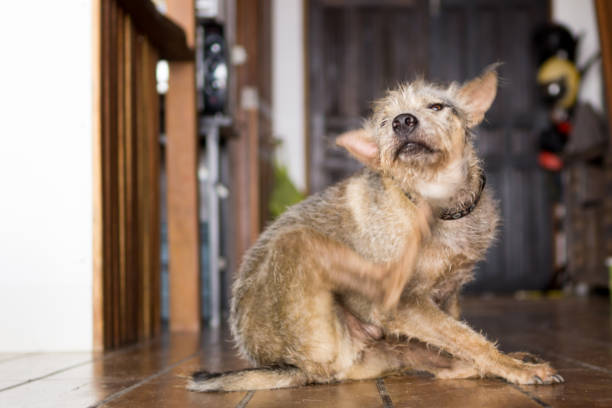
You need to know the signs that it’s more than just an itch. If you notice any of the following symptoms your dog may need medical attention:
- Persistent scratching, biting, or licking at the skin
- Red, inflamed, or scaly patches of skin
- Bald spots or thinning hair
- Open sores or scabs
- Unpleasant odor from the skin
- Excessive dandruff or flaking
By keeping an eye out for these symptoms you’ll be able to act sooner rather than later.
Diagnosing the Cause
To treat your canine's skin itching and hair loss you need to identify the underlying cause. A vet visit is usually required to get a proper diagnosis.
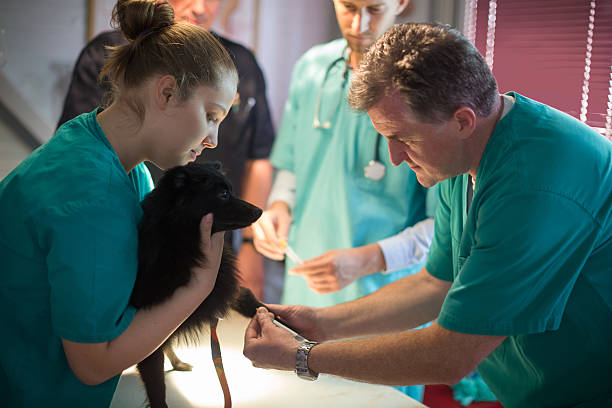
Your vet may:
- Skin Scrapings: To check for parasites like mites.
- Blood Tests: To rule out hormonal issues or allergies.
- Allergy Testing: To identify specific allergens, food or environmental.
- Fungal Cultures: To check for fungal infections like ringworm.
Once you have a diagnosis you and your vet can work out a treatment plan for your dog.
Treatment Options for Itchy Skin and Hair Loss
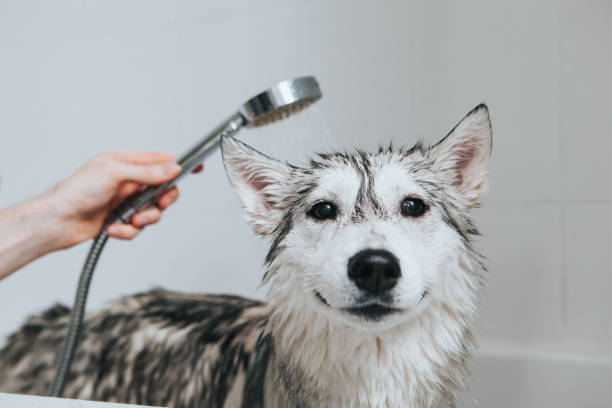
Once the cause of your dog’s itching and hair loss is known treatment can start. Treatment options will vary depending on the cause but may include topical treatments, oral medications, and home remedies.
Topical Treatments
Topical solutions are used to soothe the skin and treat external infections. These include:
- Medicated Shampoos: Shampoos for dogs with itchy or inflamed skin can help clean and soothe the skin. Look for products with oatmeal, aloe vera or medicated ingredients like chlorhexidine.
- Creams and Ointments: Antibiotic or antifungal creams can be applied directly to the affected areas to promote healing.
Oral Medications
For more severe cases oral medications may be prescribed to treat infections or itching. These:
- Antihistamines: If it’s an allergy, antihistamines can help reduce the itching.
- Antibiotics or Antifungals: If there’s a bacterial or fungal infection, a course of antibiotics or antifungal medication will be required.
- Steroids: For severe allergic reactions steroids may be prescribed to reduce inflammation and itching.
Home Remedies
For mild cases of itching and hair loss home remedies can sometimes work. But always consult your vet before trying any of these:
- Apple Cider Vinegar: Mix apple cider vinegar with water and apply it to your dog’s skin to soothe the itching and deter fleas.
- Coconut Oil: Massage coconut oil into your canine's skin to moisturize dry flaky patches and reduce irritation.
These remedies can provide temporary relief but are no substitute for proper veterinary care especially if the condition is severe.
Preventing Skin Problems in Dogs
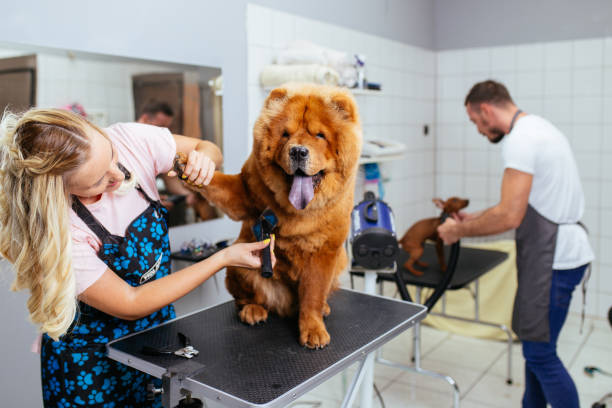
Prevention is key to keeping your dog’s skin healthy and avoiding itching and hair loss. Here’s how:
- Regular Grooming: Brush your dog regularly to remove loose hair, dirt, and allergens. Bathe your dog with a gentle moisturizing shampoo to prevent dry skin.
- Flea and Tick Prevention: Use flea and tick preventatives year-round to prevent infestations. These can be topical treatments, collars, or oral medication.
- Balanced Diet: Make sure your dog’s diet includes all the necessary nutrients, especially omega-3 fatty acids which are essential for skin and coat health.
- Allergy Management: If your dog has allergies work with your vet to develop a plan to minimize exposure to allergens. This may include hypoallergenic food or reducing environmental triggers like pollen.
By following these precautions you can prevent your dog from having future episodes of itching and hair loss.
When to See a Vet
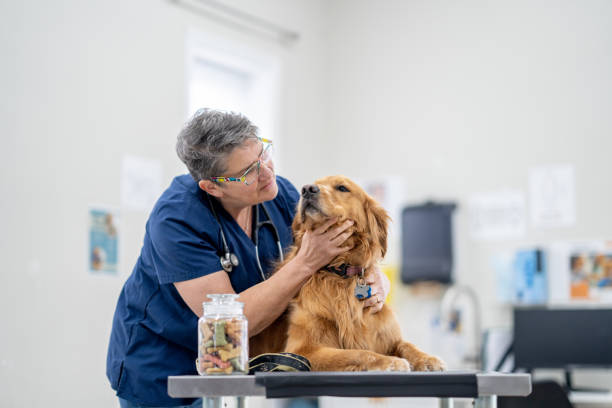
If your dog’s skin condition doesn’t improve after trying over-the-counter treatments or if the symptoms get worse it’s time to see a vet. Some conditions require prescription medication or more in-depth treatment that only a vet can provide.
Here are the signs to see a vet:
- The itching is causing open sores or significant hair loss.
- Your dog’s skin has a strong foul smell.
- The condition is persisting for more than a week without improvement.
- Your dog is showing other symptoms like lethargy, loss of appetite or vomiting.
Conclusion
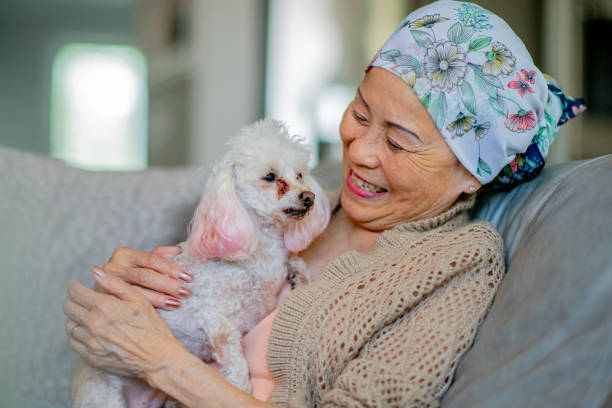
Many things from allergies and parasites can cause dog skin itching and hair loss to infections. To treat your dog’s discomfort you need to identify the cause and treat accordingly. Whether it’s medicated shampoos, oral medication, or home remedies your dog can get relief with the right care.
Prevention, such as regular grooming, flea control, and a balanced diet, is key to keeping your dog’s skin healthy and preventing future problems. Always consult your vet for a proper diagnosis and treatment plan if the condition persists or gets worse.
FAQs
1. How do I know if my dog has a skin infection?
If your dog’s skin is red, swollen or has open sores it could be a bacterial or fungal infection. A vet can confirm the diagnosis.
2. Can allergies cause hair loss in dogs
Yes, allergies—food, environmental or contact—can cause itching and hair loss in dogs.
3. Is coconut oil safe for my dog’s skin?
Coconut oil can be a soothing remedy for dry or irritated skin. But always consult with your vet before using any home remedies.
4. How often should I bathe my dog to prevent skin issues?
Bathing once every 4-6 weeks with a gentle moisturising shampoo is usually enough to keep your dog’s skin healthy without over drying it.
5. Are there any dog breeds more prone to skin problems?
Breeds with folds or sensitive skin like Bulldogs, Shar-Peis and Retrievers are more prone to skin conditions and may need extra care to keep their skin healthy.




